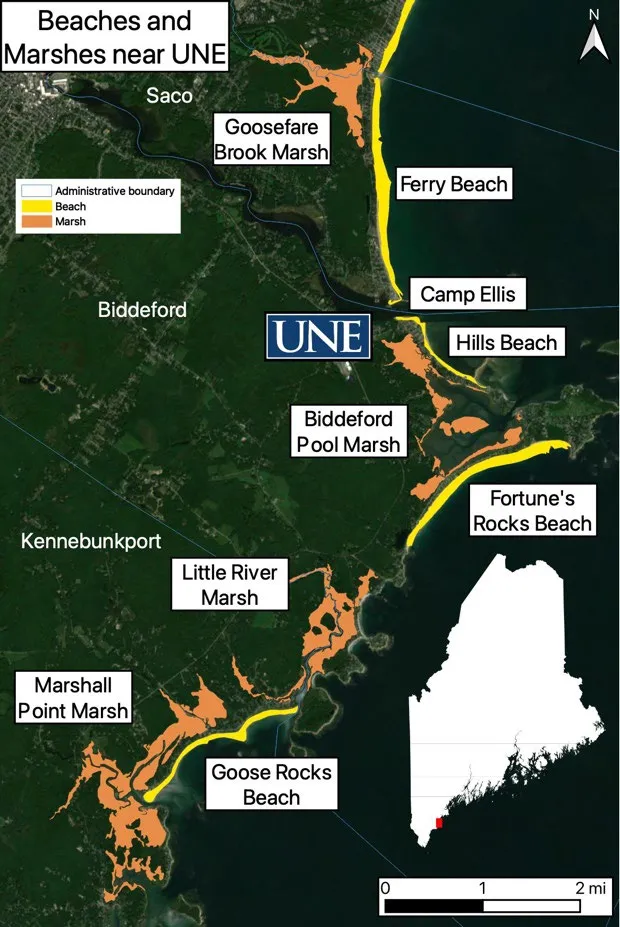UNE researcher awarded $50,000 to monitor coastal landforms in southern Maine

The University of New England has received a $50,000 Research Infrastructure Development grant from the Maine Space Grant Consortium to facilitate the comprehensive monitoring of coastal landforms in southern Maine, addressing the pressing challenges posed by climate change and its impact on the region's coast.
According to scientists at the Gulf of Maine Research Institute, the Gulf of Maine is warming faster than 97% of the world’s ocean surface. This rapid warming has caused Maine's coast to experience substantial environmental shifts, including rising sea levels and intensified storm impacts. In response to these changes, the research team, led by UNE’s Will Kochtitzky, Ph.D., assistant professor in the School of Marine and Environmental Programs, will use innovative technologies in satellite imaging and remote sensing to track and understand coastal transformations.
The primary objective is to analyze short-term impacts during significant storms and monitor the long-term effects of rising sea levels at beaches and marshes in Biddeford, Saco, and Kennebunkport. The team will particularly focus on assessing changes in standing water (pools) in these marshes over the last 15+ years, discerning the influence of climate change on these crucial ecosystems.
The research project is being conducted in collaboration with NASA, Rachel Carson National Wildlife Refuge (RCNWR), and the Gulf of Maine Research Institute (GMRI), as well as UNE North, the University’s center for North Atlantic Studies.
“We aim to develop a collaborative project among UNE, GMRI, NASA, and RCNWR to train and inspire students to quantify changes in Maine’s coast,” Kochtitzky remarked. “It is through these partnerships and working collaboratively that we can inform decision making to improve coastal resiliency.”
An integral aspect of this initiative is the active involvement of UNE students, who will lead data collection, processing, and dissemination under Kochtitzky’s guidance. These students will undergo certification as drone pilots, conducting their flights for data collection and analysis. Moreover, they will have the unique opportunity to co-author peer-reviewed manuscripts based on their research findings.
Kochtitzky further emphasized that the involvement of UNE students aligns with NASA’s strategic objective to "build the next generation of explorers." The project also encapsulates UNE's overarching mission to prepare students to thrive in a rapidly evolving world while contributing to the betterment of global health, communities, and the environment.
“This funding from the Maine Space Grant Consortium marks a significant milestone for UNE, empowering researchers and students to spearhead impactful initiatives addressing critical environmental challenges,” Kochtitzky said. “This collaborative effort will not only advance scientific understanding but also foster a new generation of leaders equipped to tackle the complexities of our changing planet.”

